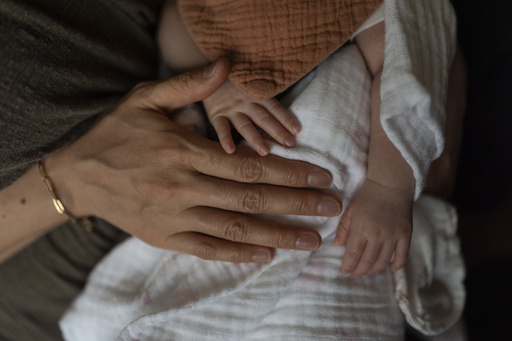Upon arriving in Seoul, tears welled up in Robert Calabretta’s eyes as memories of his impending reunion with his birth parents flooded him. Separated since he was just 3 days old, Calabretta had believed his parents had abandoned him for adoption to the United States. Upon reconnecting with his parents, he discovered the truth: they were led to believe their sick infant had died. This and similar stories have fueled scrutiny over South Korea’s controversial adoption practices, with intended parents often given false information about the children they were adopting.
South Korea, in collaboration with Western countries and adoption agencies, facilitated the adoption of around 200,000 Korean children to overseas parents. An investigative report revealed fraudulent adoption practices, including children being kidnapped, parents being misled about their children’s condition, and dubious paperwork altering children’s identities. This has prompted a global reckoning in the adoption industry, with European countries launching investigations and ceasing international adoptions, and the South Korean government initiating a fact-finding commission following pressure from adoptees.
Calabretta’s case underscores a larger issue within the adoption system, where uncertainty about the authenticity of documents prevents adoptees from reuniting with their birth families. Despite advocates maintaining that most adoptions are legitimate, the prevalence of falsified information hinders adoptees from uncovering their true roots. The complexities of fraudulent practices have left many adoptees grappling with a sense of loss and displacement between two worlds.
The adoption system in South Korea originating from the aftermath of the Korean War became a lucrative enterprise, with private adoption agencies meeting the demand of affluent families in Western countries. The skewed incentives led to increasingly unethical practices in the industry, with children often being procured from hospitals and maternity homes under dubious circumstances.
As the international adoption industry faces scrutiny, former adoption workers have come forward with accounts of pressure to expedite adoption processes, indicating that agencies focused on satisfying the demands of prospective parents rather than prioritizing the welfare of children. Reports reveal instances where identities were switched, leaving adoptees with inaccurate documents and a shattered sense of self.
The heartbreaking stories of adoptees like Calabretta, Park, and Jørnø shed light on the lasting impact of fraudulent adoption practices, as they navigate the complexities of identity, loss, and the yearning for a connection to their true heritage. Despite the hurdles they face in uncovering their origins, these individuals continue to seek answers and advocate for a transparent and ethical international adoption system.
